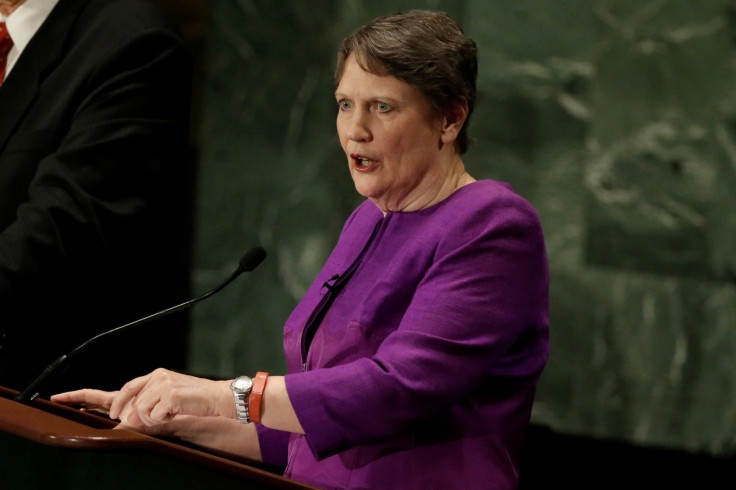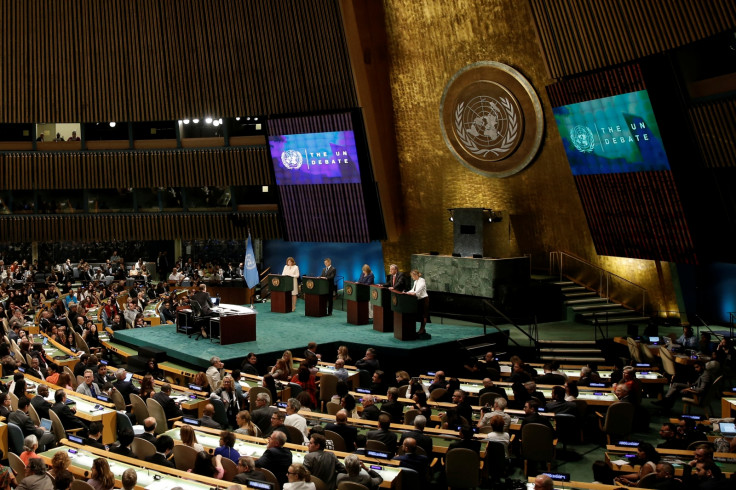UN Secretary-General 2016: New Zealand's Helen Clark makes South Pacific pitch for top diplomat role
Ten candidates faced questions in a televised question and answer session at the UN General Assembly.

In her pitch to be the new United Nations Secretary-General, the former New Zealand prime minister Helen Clark has said that despite the world's next top diplomat being favoured to come from eastern Europe, the best candidate should get the job regardless of their region.
Among the candidates who took part in a televised debate in New York on Tuesday (12 July), Clark, administrator of the UN development programme, said talent, not location, should be the deciding factor, adding: "I really think that given the scale of the challenges our world is facing that we need a global search for the best talent."
In common with the other candidates, she said that helping refugees and tackling human rights concerns should be the focus for the next Secretary-General, who will take over from Ban Ki Moon at the end of 2016.
The discussion in the General Assembly was broadcast live around the world on the Al Jazeera television network with the candidates being quizzed by the hosts and the audience on issues ranging from leadership style, climate change, the International Criminal Court and the civil war in Syria.
"I believe the long-term answers lie in building the peaceful and inclusive societies which will talk their differences out, and not fight them out.
"But in the short term we have to get a lot better at anticipating those warning signs of what could spill over into serious human rights abuses and conflict," Clark said.
The candidates were split into two groups of five with the first panel formed by Vesna Pusić from Croatia, António Guterres from Portugal, Susana Malcorra from Argentina, Nathalie Gherman from Moldova and Serbia's Vuk Jeremić.
Jeremić told IBTimes UK in June that the next leader needed to be more of a leader and less of a diplomat.
Jeremić, who was a former president of the UN General Assembly, told the audience on Tuesday (12 July): "Not all is well at the UN. There's a growing perception that historic achievements are overshadowed by a sense of stagnation and failure. We have to do something about it and fast. This is not a time for rhetoric but decisive action."
The candidates in the second group included Clark, Danilo Turk from Slovenia, Christiana Figueres from Costa Rica, Argentina's Susana Malcora, Igor Lukšić from Montenegro and another frontrunner, Irina Bokova from Bulgaria.

The crisis in South Sudan that has erupted over the last few days exercised the candidates with Malcorra telling the audience: "What we see there is a total lack of leadership to take the nation forward.
"My sense the Security Council needs to find alternatives to what is happening on the ground today, but at the end of the day, it is up to the leadership in South Sudan," she added.
The smart money is on a woman taking the post and one of the favourites, UNESCO director general Irina Bokova said: "If I am selected for this post I will be a big fighter for tolerance, peace and to overcome divisions."
Although this has been the most transparent process yet, when the 15-member security council starts informal secret ballots next week to choose a candidate to recommend to the general assembly for election later this year, the results will not be made public.
Council members will be given a ballot for each candidate with the options of encourage, discourage and no opinion.
The UN Security Council will tally the ballots and tell the nominating states of the results for their candidate, but the public will not know the overall results. There is hope however that the relative transparency of the process this year will mean an end to the perception that the post will be chosen behind closed doors.
© Copyright IBTimes 2024. All rights reserved.






